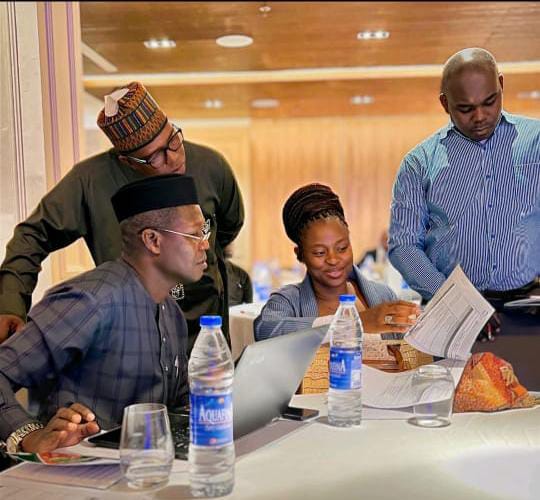At a time when regional trade and digital infrastructure are driving Africa’s economic future, Nigeria is making strategic moves to ensure it’s not left behind.
One such move was the recent 3-day training hosted by Germany through Deutsche Gesellschaft für Internationale Zusammenarbeit (GIZ), and the Federal Ministry of Industry, Trade and Investment (FMITI) to empower focal persons from various trade-regulating agencies to manage and sustain the Nigeria Trade Information Portal (NTIP).
Held in Lagos, the training wasn’t just another sit-down-and-listen workshop. It was a hands-on, immersive experience designed to build real capacity and spark inter-agency collaboration — the kind of collaboration that’s essential for Nigeria to fully align with the WTO Trade Facilitation Agreement and leverage the AfCFTA.
NTIP is an online portal that gives businesses step-by-step guidance on what they need to do to move goods across borders. Whether you’re exporting shea butter or importing tech components, the NTIP helps you understand the rules, documentation, agencies involved, and timelines.
In a country where “who you know” has too often replaced “what you know,” the NTIP is transparency in action. And now, thanks to this training, the people behind the scenes—Customs officers, regulators, and trade desk managers—are better equipped to keep that information current and accurate.
The NTIP team of the trade department in the Federal Ministry of Industry, Trade and Investment, shared: “We are glad this workshop has achieved the purpose of enhancing the technical know-how of the NTIP team on the first hand and raised the knowledge of focal persons from the key regulatory agencies who attended the workshop.”
Participants from SON, NAFDAC, the Nigeria Customs Service, and several other MDAs dove into topics like:
‘How to integrate trade procedures online using the NTIP admin panel’, ‘Ensuring data reliability and portal security’, ‘Responding to public enquiries effectively’, and ‘Collaborating across agencies to streamline trade bottlenecks’.
The sessions also included live simulations, real-world case reviews, and the development of a 3-month action plan to guide post-training implementation.
For many participants, the training was more than just technical. It was a mindset shift.
Barrister Mike, a participant from the Association of Nigeria Licensed Customs Agents, shared his experience: “ A lot of procedures have changed since the cancellation of the SEMA Act 2014. Being able to document these changes on the portal will make things seamless for importers and exporters.”
The training forms part of GIZ’s broader strategy to promote inclusive, transparent trade ecosystems across West Africa. The organization has been instrumental in supporting digital tools, policy frameworks, and institutional strengthening — all of which are crucial for operationalizing agreements like the AfCFTA.
“We see digital trade platforms like the NTIP as foundational infrastructure. Our support is about ensuring that the tools are not only available but usable and impactful,” said Bernard Tayoh, Head of Project GIZ Support to ECOWAS Commission in the implementation of AfCFTA.
With a trained pool of focal persons now embedded within trade MDAs, Nigeria is set to build a more responsive, transparent, and efficient trade system. Businesses — especially SMEs — stand to benefit the most.
Traders and entrepreneurs are encouraged to explore the portal to find out what they need to trade smarter, faster, and with fewer surprises.
Digital tools like the NTIP are changing the way trade is done in Africa — but they only work when people know how to use them. This training proves that with the right investment in people, the impact of platforms like NTIP can be both wide-reaching and long-lasting.




